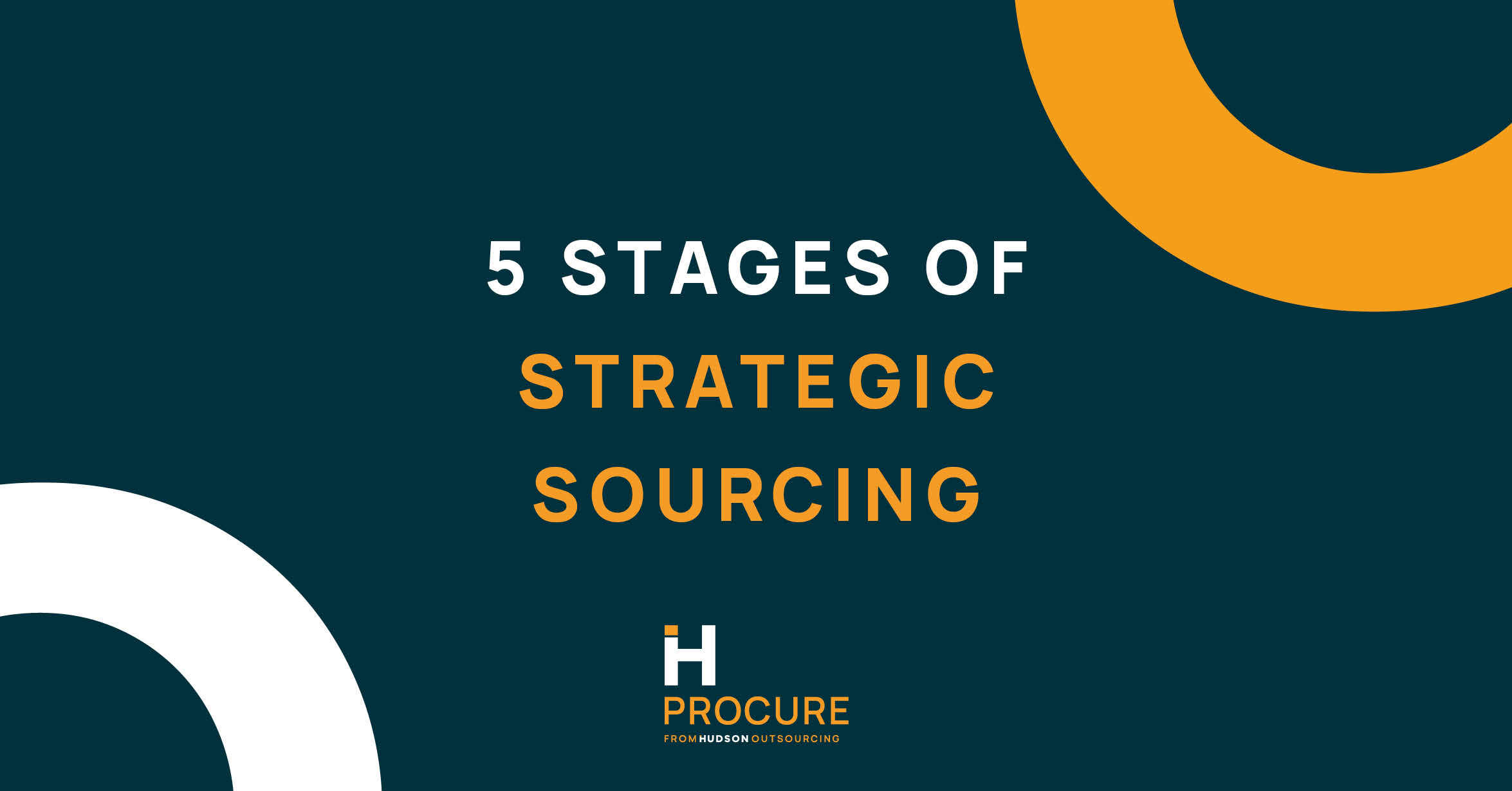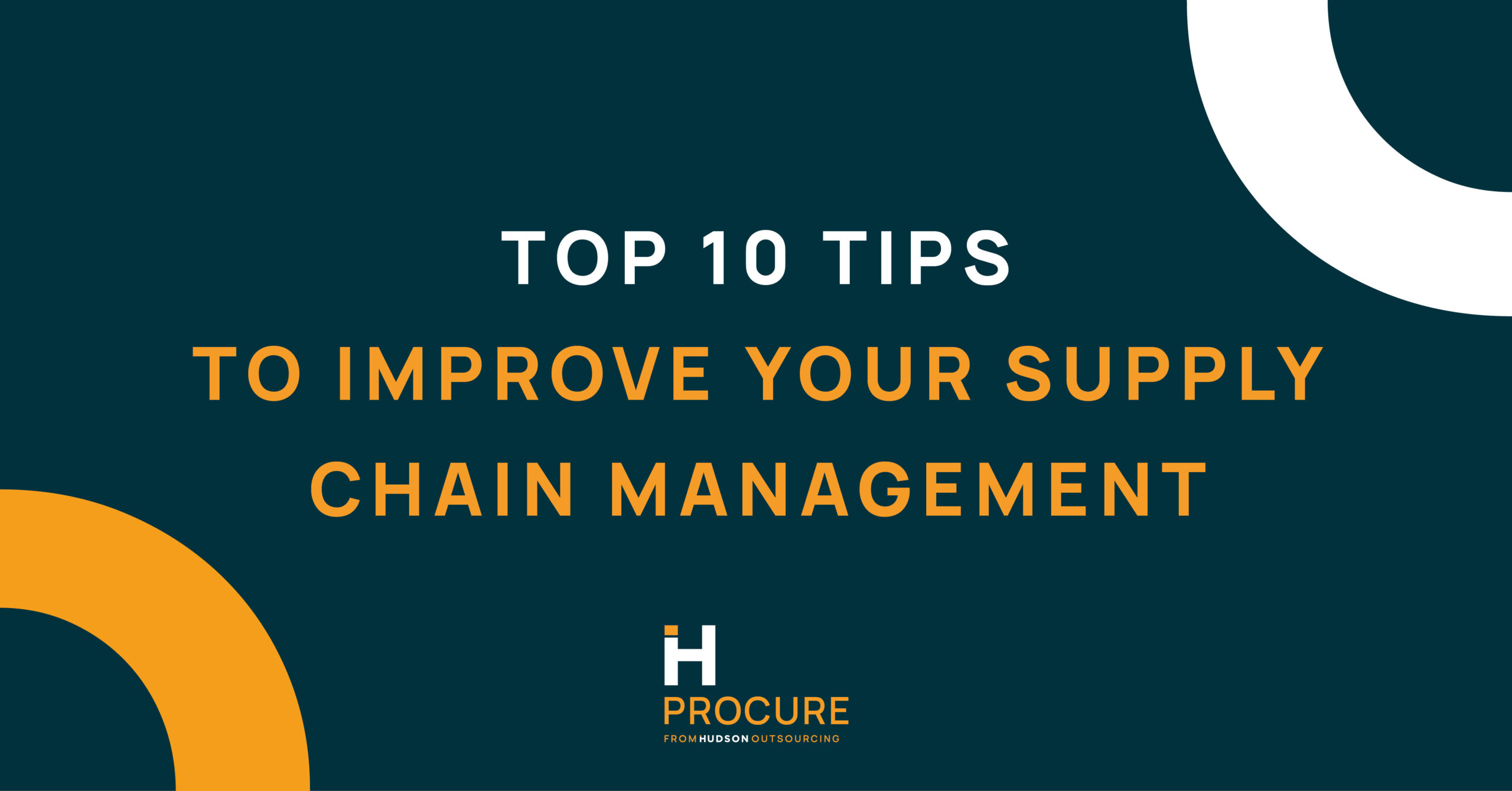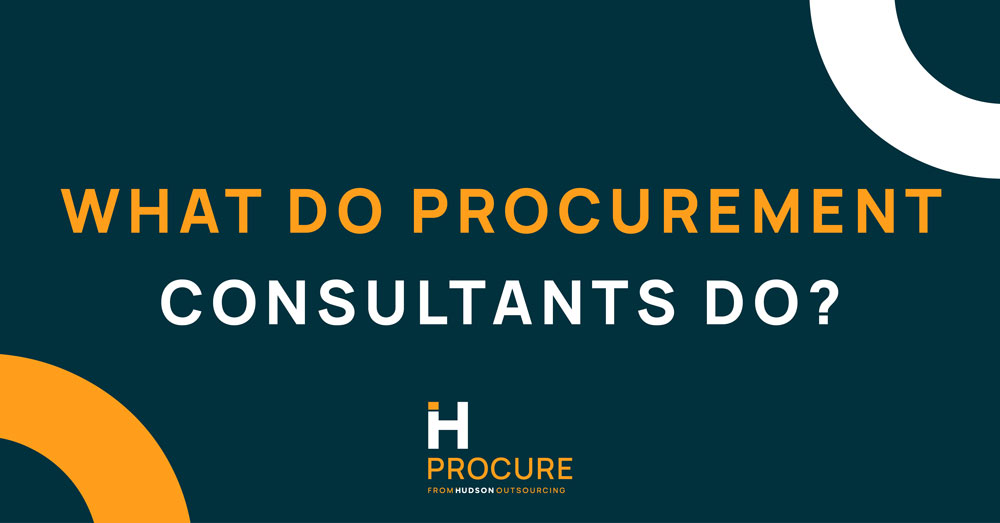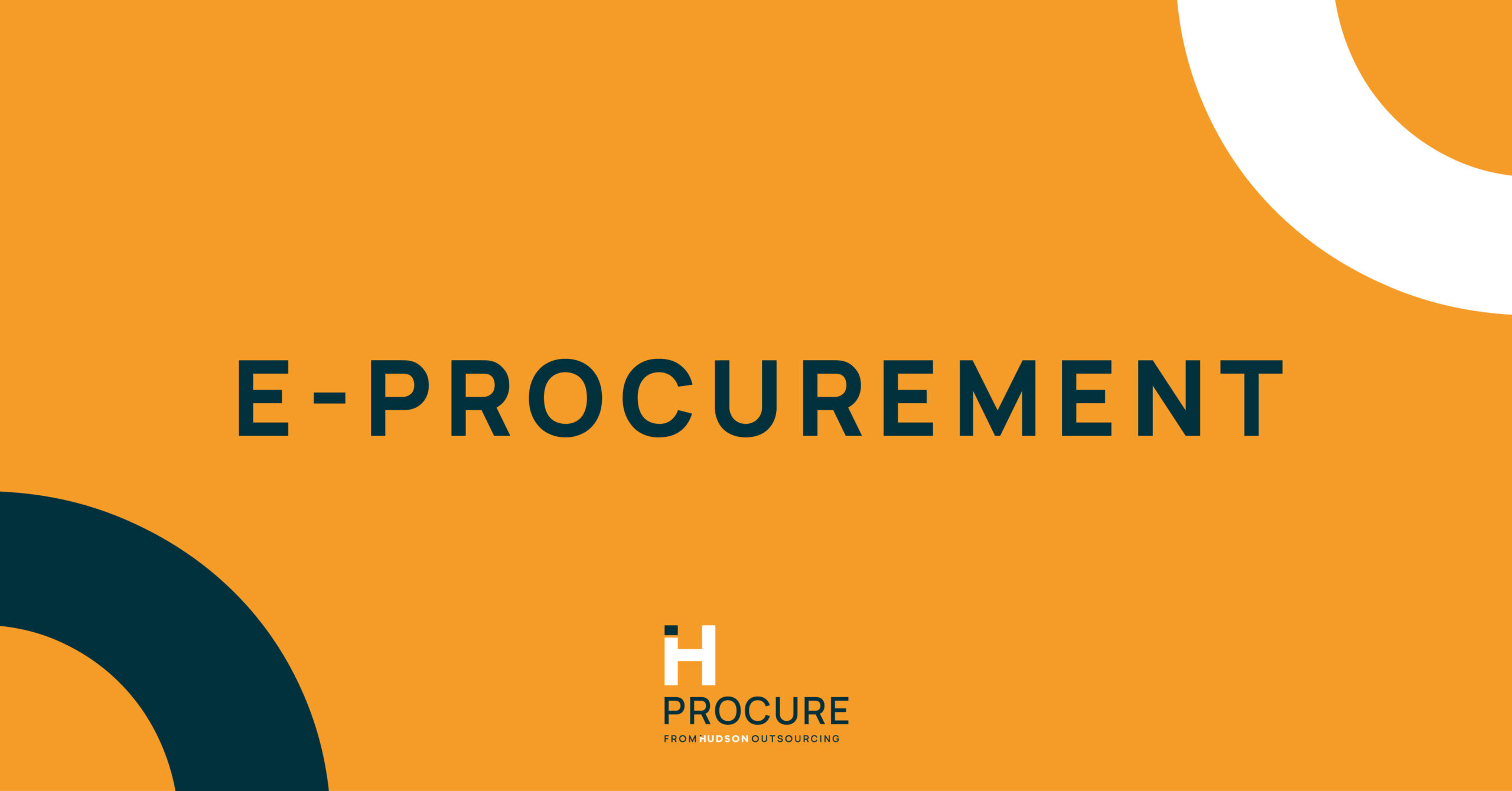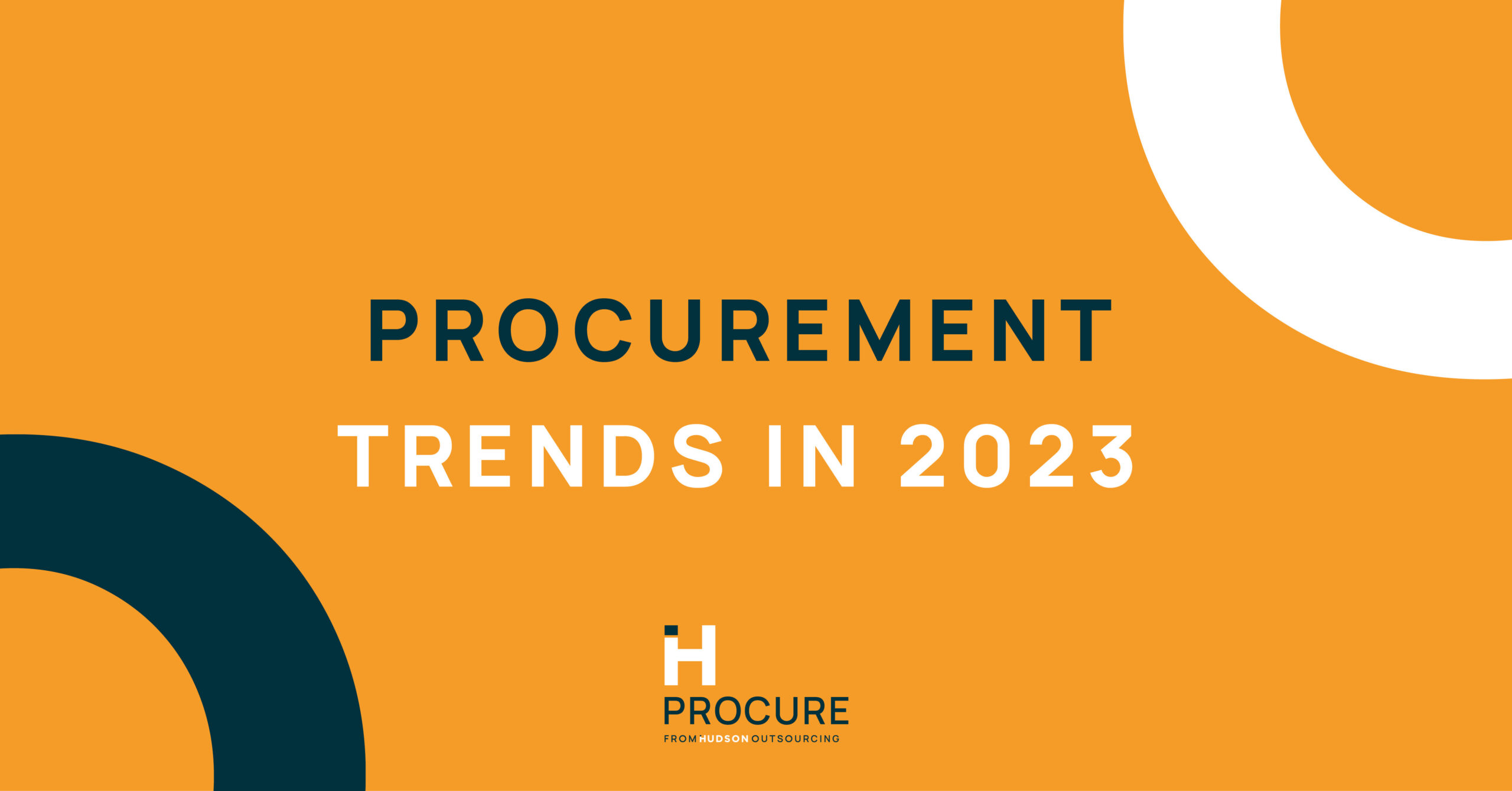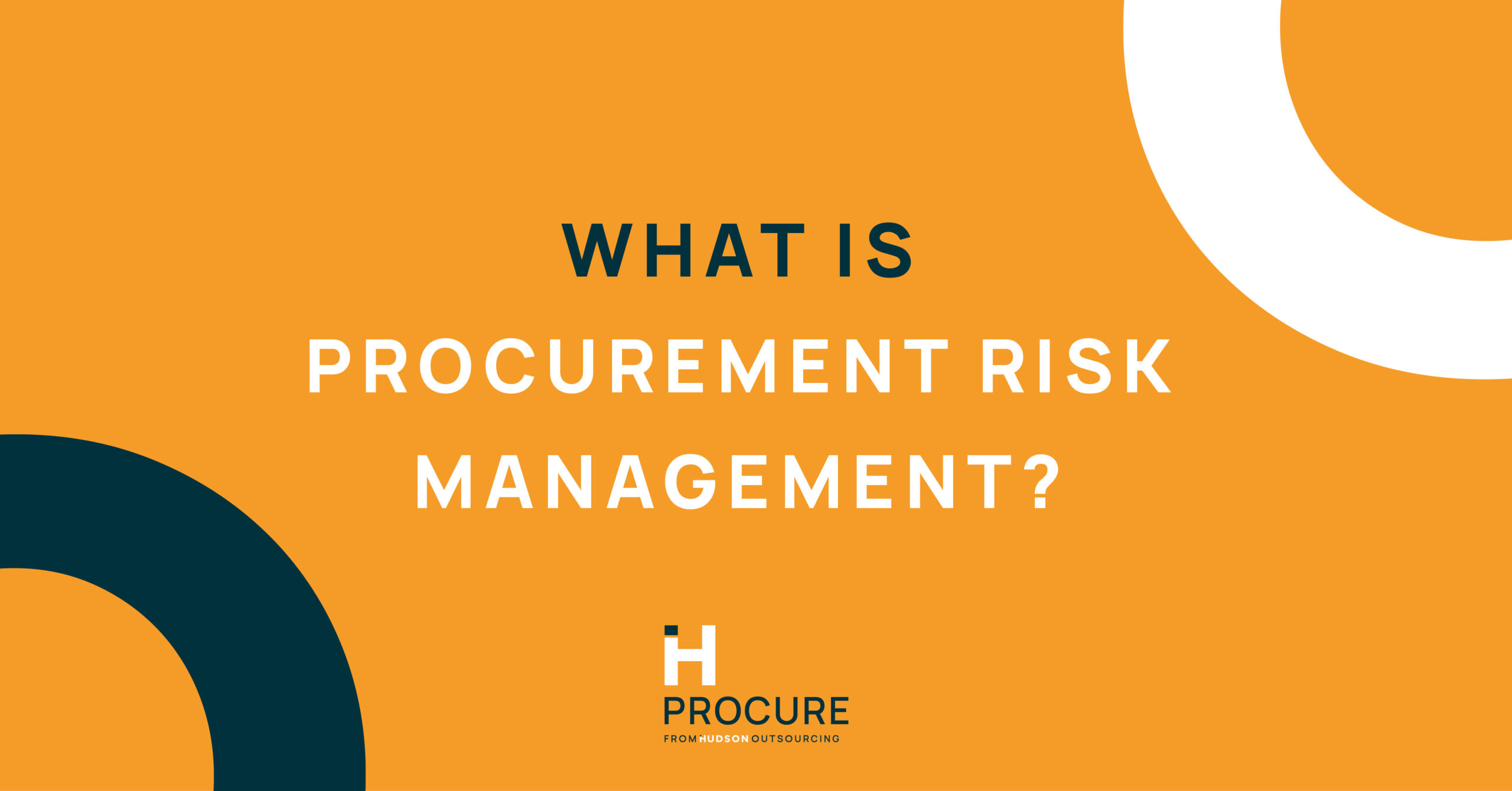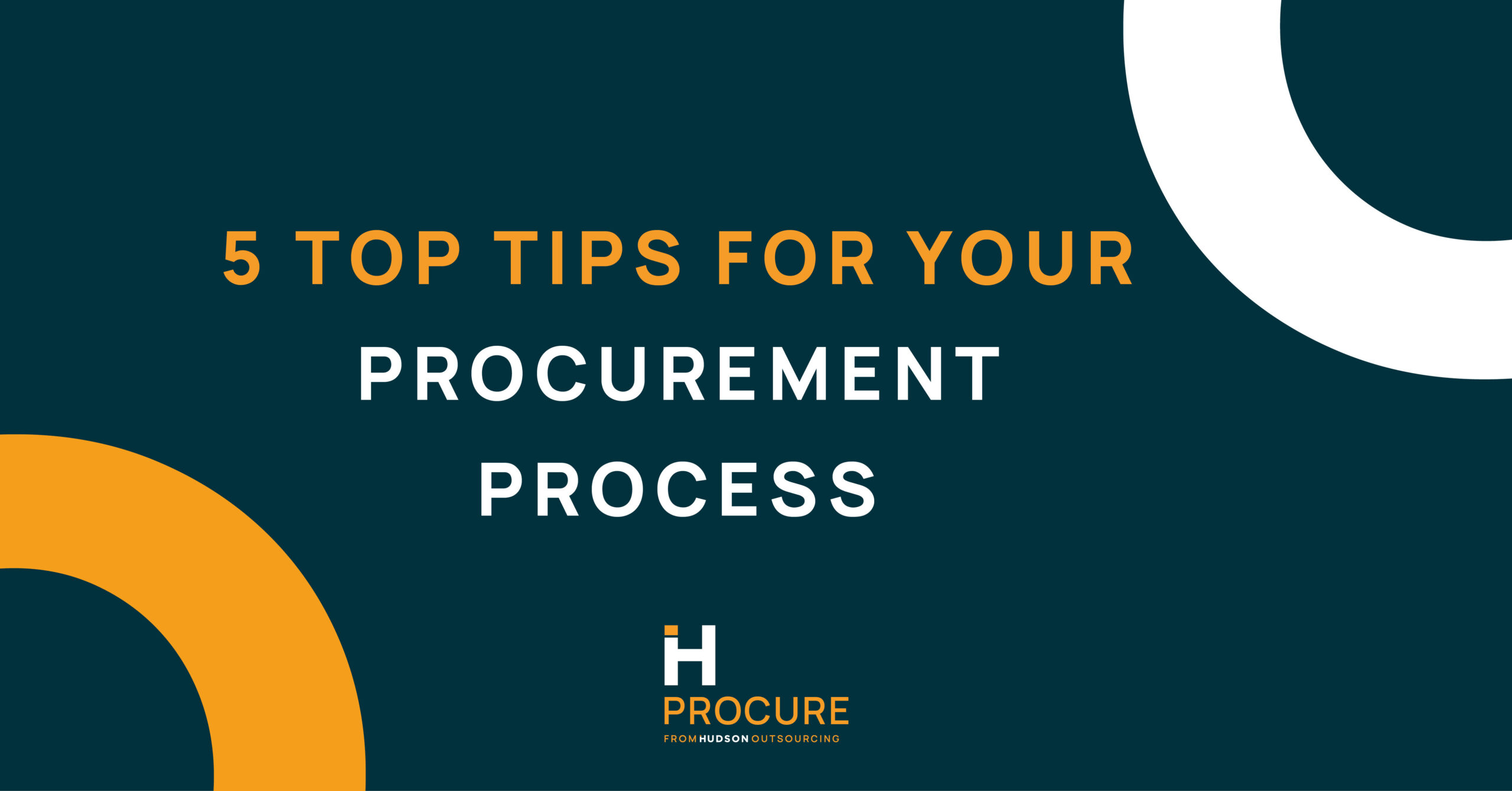Procurement insights: What is strategic sourcing?
If you’re delving into the world of procurement, you might have heard of strategic sourcing. But do you actually know what it means?
Here at Hudson Procure, we have 20 years of procurement management experience. It’s safe to say that we’re experts in procurement! In this guide, we’ll take you through strategic sourcing and explain why it’s important for your organisation. Keep reading to find out more…
What is strategic sourcing?
Strategic sourcing is an approach to supply chain management that considers all activities within the procurement cycle. Instead of simply purchasing the lowest priced goods or services, businesses will receive the best value for money.
How will strategic sourcing benefit businesses?
There are many benefits of strategic sourcing, including:
Whether you’re an SME or large, multi-national organisation, we’ve no doubt that you’ll be interested in this benefit. By taking a strategic approach to your procurement processes, your organisation is sure to save money. This is because you’ll be procuring the highest quality services for the lowest possible price. In the world of procurement, this is commonly known as the most economically advantageous tender, or the MEAT.
Another benefit of this approach is that there are fewer risks, for buyers and suppliers alike. As part of strategic sourcing, businesses are encouraged to conduct quality, financial, supply and customer support risk assessments. This will allow buyers to identify any real or potential risks. Following that, buyers can also work to minimise these risks so they’re ready to navigate the end-to-end procurement process.
-
Opportunities for improvement
The process of strategic sourcing is not a one-off activity. In fact, buyers should be prepared to continuously improve their procurement strategies. To procure goods and services effectively, you need to identify areas for improvement and build on these. This could include anything from capitalising on market opportunities to staying competitive in your sector. As your procurement strategy improves, so will other areas of your business.
With strategic sourcing, procurement activities are focused on more than price alone. Buyers will also assess the capabilities of each supplier they consider working with.
As we mentioned earlier, this is commonly referred to as the MEAT. When sourcing the MEAT, buyers are considering all factors. This ensures that businesses don’t choose a supplier simply because they’re cheap. It also prevents suppliers from pricing their services too low just to win the bid. Not only that, but it also increases transparency in the procurement process in the public sector.
How to create an effective strategic sourcing strategy
So, now you know the benefits of strategic sourcing. However, do you know how to create an effective strategic procurement strategy?
The steps involved in your strategy will depend on your business and your exact requirements. It’s important to understand your organisation’s needs before producing your procurement strategy. However, it’s common for an effective strategy to include the following five stages:
1. Analyse your spending behaviour
To start with, you should analyse your spending behaviour. This will help you assess your current procurement strategy and prioritise your sourcing activities. As part of this analysis, you should categorise your key spend areas into:
- Critical and non-critical
- Domestic and international
- Direct and indirect.
This will help you identify trends in your spending behaviour and make it easier to find areas that require improvement.
2. Research the supplier market
After analysing your spending behaviour internally, it’s time to research the current supplier market. Look at suppliers in your sector, both businesses that you’ve worked with before and ones that you haven’t. What is their market standing? How have they performed in the past? Are there any risks associated with each supplier? What are they, and can they be mitigated?
By doing this, you’ll gain more understanding about the suppliers who could deliver the services you require. Once this is done, you’ll have enough information to complete the next stage of the process.
3. Publish a tender notice
As part of your strategic sourcing strategy, you should find out more information from potential suppliers. To do this, you can publish a tender notice and invite suppliers to bid for your project.
This is a crucial part of the procurement process. You need to complete this stage to find the best suppliers for your business. As part of your tender notice, you should provide potential suppliers with the following:
- Description of what is required. This outlines the goods, services or works being procured.
- Specification of what is required. This includes the marking criteria, such as quality and price.
- Delivery details. For example, time and location.
- Terms and conditions. There are two types of terms and conditions in a contract. These are express terms and implied terms.
- Service Level Agreement (SLA). This is an agreement between the buyer and supplier based on quality, delivery, availability and other measurable criteria.
4. Evaluate submissions
The next part of your strategic sourcing strategy is to actually evaluate the tender submissions you receive from potential suppliers.
A key part of strategic sourcing is finding a supplier that can offer your business the best value for money. There are different evaluation processes, but the most common one is the MEAT, which stands for most economically advantageous tender. This is particularly common for the procurement process in the public sector. With this method, buyers are looking for the most value for money. So, the contract is likely to be awarded to the supplier offering the best value for the lowest price.
Typically, buyers will evaluate each question and award it a score between 0 and 10. In most cases, a score of less than 5/10 will be rejected immediately. Your selection and award criteria must be clear and precise so that the supplier understands what’s important to you.
5. Award the contract
Finally, it’s time to award the contract to your chosen supplier. Buyers need to give notice to every supplier that submitted a bid, whether they were successful or not. Alongside this, you should include appropriate feedback on why their tender was unsuccessful, and why the winning bid was successful. Generally, this will include how highly the winning supplier scored against your criteria.
However, your strategic sourcing strategy shouldn’t end there. To ensure you’re consistently receiving the best value for money, you need to monitor the supplier’s progress throughout the contract. This will give you the best chance of fixing any errors, setbacks or delays that you encounter.
In conclusion
Strategic sourcing is an approach to supply chain management that considers all activities within the procurement cycle. Instead of simply purchasing the lowest priced goods or services, businesses will receive the best value for money.
There are many advantages of strategic sourcing, including:
- Lower costs
- Fewer risks
- Opportunities for improvement
- Access to the best suppliers.
For effective sourcing, you need to create a well-thought-out strategy for your organisation. As part of the strategic sourcing process, you should follow these steps:
- Analyse your spending behaviour
- Research the supplier market
- Publish a tender notice
- Evaluate submissions from suppliers
- Award the contract to your chosen supplier.
How can Hudson Procure help your business?
At Hudson Procure, our procurement experts have nearly two decades of experience. No matter what kind of support you’re looking for, we can help.
Procure Consult
With Procure Consult, we offer support with tender management and ad-hoc procurement consultancy. Our expert team will manage the end-to-end procurement process or offer assistance with any stage, as and when required.
Procure Health Check
With Procure Health Check, we’ll conduct a full review of the strategic and operational procurement processes within your organisation. We’ll identify the areas that need improvement and help you drive greater value from the procurement process.
Procure Analyse
The purpose of Procure Analyse is to conduct a high-level analysis of your spending activity. We’ll help you understand your current strategic purchasing behaviour and highlight areas that can deliver greater value. Procure Analyse is also offered as part of Procure Health Check or as a standalone service.
Procure Outsourcing
With Procure Outsourcing, we deliver a range of procurement solutions on an outsourced basis, completely bespoke to you. This can range from delivering multiple tender projects as a package to delivering the full procurement function of your organisation.
Procure Post
Are you trying to find a supplier for your project? Post your tendering opportunity onto any of our 11 sector-specific portals for FREE with Procure Post!
Housed by our sister company, Hudson Discover, our portals host thousands of tendering opportunities for organisations of all sizes. For an additional cost, we’ll even help you identify your requirements and find the most suitable suppliers for your business.
Get in touch for a consultation and find out how we can help your business grow.
Check out our other blogs for further Procurement Insights:

